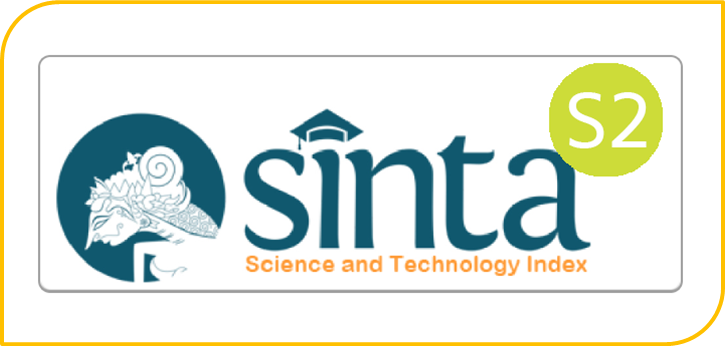ZAKAH OF AGRICULTURE: FACTORS INFLUENCING FARMERS’ BEHAVIORAL INTENTION TO PAY
Abstract
Keywords
Full Text:
PDFReferences
Abdullah, A. (2017). Model Perhitungan Zakat Pertanian (Studi Di Kecamatan Kuta Makmur Aceh Utara). At-Tawassuth, 2(1), 69–93. http://www.jurnal.uinsu.ac.id/index.php/tawassuth/article/view/775
Agustin Syn, A., Muhammad Ali, K., and Hafidhuddin, D. (2018). Factors Affecting Palm Farmers’ Decisions to Dispense Plantage-Product Zakat in Labuhanbatu Selatan Regency. International Journal of Zakat, 3(3), 13–24.https://doi.org/10.37706/ijaz.v3i3.92
Al Ghofiqi, M. A. (2018). Faktor-Faktor Yang Mempengaruhi Muzaki Membayar Dan Tidak Membayar Zakat Pada Lazismu Kabupaten Jember. JIAI (Jurnal Ilmiah Akuntansi Indonesia), 3(1), 284–299. https://doi.org/10.32528/jiai.v3i1.1674
Alpriyamah, Q. U., and Adityawarman. (2017). Analisis Faktor-Faktor Yang Mempengaruhi Perilaku Kepatuhan (Compliance Behavior) Pembayaran Zakat Perdagangan (Studi Kasus Pengusaha Muslim Batik di Kota Pekalongan Tahun 2017). Diponegoro Journal Of Accounting, 6(3), 680–692. http://ejournal-s1.undip.ac.id/index.php/accounting
Amalia, A., and Mahalli, K. (2012). Potensi Dan Peranan Zakat Dalam Mengentaskan Kemiskinan Di Kota Medan. Jurnal Ekonomi Dan Keuangan, 1(1), 14869. https://jurnal.usu.ac.id/index.php/edk/article/view/635
Aryadhe, T., Suryani, A., and Sudiksa, I. B. (2018). Pengaruh Sikap Dan Norma Subjektif Terhadap Niat Beli Dan Keputusan Pembelian. E-Jurnal Manajemen Unud, 7(3), 1452-1480. https://media.neliti.com/media/publications/255052-pengaruh-sikap-dan-norma-subjektif-terha-76c7ce29.pdf
Asmalia, S., Awaliah Kasri, R., and Ahsan, A. (2018). Exploring The Potential Of Zakah For Supporting Realization Of Sustainable Development Goals (SDGs) In Indonesia. International Journal of Zakat, 3(4), 51–69. https://doi.org/10.37706/ijaz.v3i4.106
Asminar. (2017). Pengaruh Pemahaman, Transparansi dan Keputusan Membayar Zakat Pada Kota Binjai. At-Tawassuth, III(3), 260–281. https://jurnal.uinsu.ac.id/index.php/tawassuth/article/view/1222/972
Badan Pusat Statistik. (2020). Harvested Area And Rice Production In Indonesia 2019. BPS, Statistics Indonesia, 16, 12. https://www.bps.go.id/
Bidin, Z., Deraman, M. J., and Othman, M. Z. (2016). The Realtionships Among Attitude, Subjective Norm And Behavioral Intention On Zakah. International Conference on Masjid, Zakat and Waqf, December, 1–7. https://www.researchgate.net/publication/311805088
Bidin, Z., Idris, K. M., and Shamsudin, F. M. (2009). Predicting Compliance Intention On Zakah On Employment Income In Malaysia: An application Of Reasoned Action Theory. Jurnal Pengurusan, 28, 85–102. https://doi.org/10.17576/pengurusan-2009-28-05
BPS. (2018). Poduktivitas Padi Menurut Provinsi Tahun 2014-2018. Badan Pusat Statistik, 26(2), 252. https://www.pertanian.go.id/home/?show=pageandact=viewandid=61
Cahyani, U. E., Aviva, I. Y., and Manilet, A. (2019). Faktor-Faktor Yang Memengaruhi Intensi Muzakki Dalam Membayar Zakat Di Lembaga. TAZKIR: Jurnal Penelitian Ilmu-Ilmu Sosial Dan Keislaman, 5(1), 39–58. https://doi.org/10.24952/tazkir.v5i1.1331
Cokrohadisumarto, W. bin M., Zaenudin, Z., Santoso, B., and Sumiati, S. (2019). A Study Of Indonesian Community’s Behaviour In Paying Zakat. Journal of Islamic Marketing, 11(4), 961–976. https://doi.org/10.1108/JIMA-10-2018-0208
Eka Setianingsih, H., Irsyad, M., and Velayati, A. A. (2022). Exploring The Predictors Of Zakat Compliance In The Community Of Farmers. JIFA (Journal of Islamic Finance and Accounting), 5(1), 15–28. https://doi.org/10.22515/jifa.v5i1.5295
Ghazali, I. (2018). Aplikasi Analisis Multivariate Dengan Program IBM SPSS 25 (ke-9). Semarang: Badan Penerbit Universitas Diponegoro.
Huda, N., and Ghofur, A. (2016). Analisis Intensi Muzakki Dalam Membayar Zakat Profesi. Al-Iqtishad: Journal of Islamic Economics, 4(2). https://doi.org/10.15408/aiq.v4i2.2547
Huda, N., Rini, N., Mardoni, Y., and Putra, P. (2012). The Analysis Of Attitudes , Subjective Norms , And Behavioral Control On Muzakki’s Intention To Pay Zakah. International Journal of Business and Social Science, 3(22), 271–279. https://www.ijbssnet.com/journals/Vol_3_No_22_Special_Issue_November_2012/24.pdf
Kasri, R. A., and Sosianti, M. W. (2023). Determinants Of The Intention To Pay Zakat Online: The Case Of Indonesia. Journal of Islamic Monetary Economics and Finance, 9(2), 275–294. https://doi.org/10.21098/jimf.v9i2.1664
Kayati, K. (2018). Peran Theory Of Reasoned Action Terhadap Minat Menggunakan Produk Bagi Hasil Bank Syariah. Accounthink : Journal of Accounting and Finance, 3(01), 454–467. https://doi.org/10.35706/acc.v3i01.1210
Mahyarni, M. (2013). Theory Of Reasoned Action And Theory Of Planned Behavior (Sebuah Kajian Historis tentang Perilaku). Jurnal EL-RIYASAH, 4(1), 13. https://doi.org/10.24014/jel.v4i1.17
Muhammad Ikhlas, R., Ramli, M. A., Mohamad Zaim, I., and Mohd Farhan, M. A. (2014). Zakah On Agriculture Reformation: An Analysis in Malaysia. Sains Humanika, 3(1), 47–53. https://www.researchgate.net/publication/274634619
Nopriardo, Widi Afriani, Afriani Pahlevi, R. (2018). Pelaksanaan Zakat Pertanian (Studi Kasus Petani Bawang Di Nagari Kampung Batu Dalam Kecamatan Danau Kembar Kabupaten Solok). Al-Masraf: Jurnal Lembaga Keuangan Dan Perbankan, 3(1), 29–42. http://dx.doi.org/10.15548/al-masraf.v3i1.165
Novia, N., Noor, I., and Ekawaty, M. (2018). Analisis Pengaruh Faktor Non-Ekonomi Terhadap Sikap Pedagang Madura Dalam Membayar Zakat Perdagangan. Al-Muzara’ah, 6(1), 61–76. https://doi.org/10.29244/jam.6.1.61-76
Nurhayadi, W., Hasanudin, A. I., and Badina, T. (2017). Anteseden Dan Konsekuensi Niat Membayar Zakat Penghasilan. Syi`ar Iqtishadi : Journal of Islamic Economics, Finance and Banking, 1(2), 123–156. https://doi.org/10.35448/jiec.v1i2.2559
Othman, Y. H.-, Alwi, I., Yusuff, M. S. S., and Saufi, M. S. A. M. (2017). The Influence Of Attitude, Subjective Norm, And Islamic Religiosity On Compliance Behavior of Income Zakat Among Educators. International Journal of Academic Research in Business and Social Sciences, 7(11). https://doi.org/10.6007/ijarbss/v7-i11/3549
Pitchay, A. A., Kameel, A., Meera, M., and Saleem, M. Y. (2015). Factors Influencing The Behavioral Intentions Of Muslim Employees To Contribute to Cash- Waqf Through Salary Deductions. 28(1), 57–90. https://doi.org/10.4197/Islec. 28-1.3
Priyono. (2016). Metode Penelitian Kuantitatif. Sidoarjo: ZIFATAMA PUBLISHING.
Ramadhan, H. A. A. (2021). Pengaruh Pemahaman , Trust , Dan Transparansi Lembaga Zakat Terhadap Minat Masyarakat Membayar Zakat Pada BAZNAS Kabupaten Luwu. Jurnal Akuntansi Dan Pajak, 21(2), 1–15. http://dx.doi.org/10.29040/jap.v21i2.1340
Sugiyono. (2017). Metode penelitian bisnis (ke-3). Bandung: ALFABETA.
Suko, F., Sobari, N., and Usman, H. (2018). Pengaruh Attitude , Subjective Norms dan Perceived Behavioral Control terhadap Intensi Kepemilikan Kartu Kredit Syariah. MEIS : Jurnal Middle East and Islamic Studies, 5(2), 1–22.
Susilowati, S. H. (2016). Fenomena Penuaan Petani Dan Berkurangnya Tenaga Kerja Muda Serta Implikasinya Bagi Kebijakan Pembangunan Pertanian. Forum Penelit. Agroecon., 34(1), 35–55. https://epublikasi.pertanian.go.id/berkala/fae/article/view/1150
Winarno, M. E. (2013). Metodologi Penelitian Dalam Pendidikan Jasmani. Malang: Universitas Negeri Malang (UM PRESS).
DOI: https://doi.org/10.18860/ed.v11i2.21425
Refbacks
- There are currently no refbacks.
Editorial Office:
Megawati Soekarnoputri Building
Faculty of Economics
E-mail: eldinar@uin-malang.ac.id
Universitas Islam Negeri Maulana Malik Ibrahim Malang
E-ISSN 2622-0083

El Dinar under a CC BY SA 4.0 International License.
Member of:
Indexed By:
















